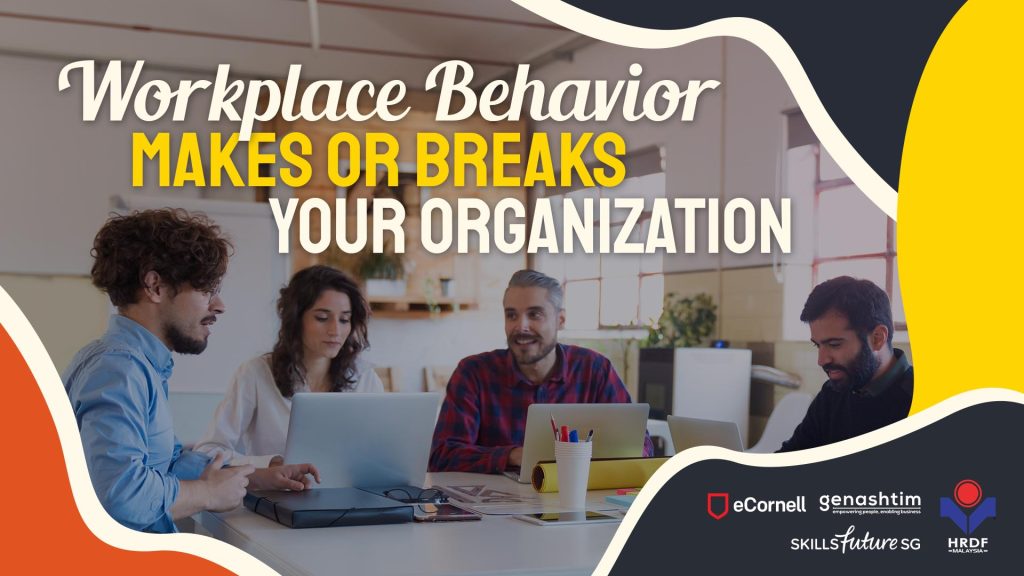Consolidate Workplace Behavior to Engage Customers

In every organization, it is the responsibility of each employee to uphold the corporate culture through their workplace behavior. In an article by Vantage Circle, it points out that workplace behavior or employee behavior is an integral part of an organization. It means employees going the extra mile to ensure that their organization not only operates like a well-oiled machine but is also growing organically and robustly.
What is workplace behavior?
Workplace behavior is simply defined as an employee’s response to certain circumstances in the workplace. Employee workplace behavior is influenced by the organization’s culture.
What is the difference between employee performance and employee behavior?
Employee performance refers to the assessment of the employee’s metrics in terms of various factors like hitting sales targets, clinching business deals, saving time, being cost-effective, and solving problems swiftly – this is the reason why employees are hired in the first place.
Employee behavior is literally the workplace culture. It forms the core of your company and all the different behaviors that are recognizable as positive or otherwise. Positive workplace behaviors may include:
- Coming to work early
- Applying great team spirit
- Using resources prudently
- Owning up to mistakes
- Checking work emails on off days
A person’s behavior cannot be measured, much like workplace behavior. But good and desirable employee behaviors can be organically cultivated and sordid whereas unwanted employee behaviors can be gradually eliminated.
Why should employers reward good employee behavior?
Like all other skillsets and acumen, good workplace behavior must receive recognition and acknowledgment; both serve as an impetus for employees to maintain the coveted behavior to maintain a healthy workplace environment.
What are some of the positive employee behaviors that are worthy of recognition and reward?
As an employer, you should recognize and reward the following salient employee behaviors:
- Humility
- Adaptability
- Teamwork
- Analytical thinking
- Confidence
- Dependability
Employee behaviors ultimately counsel customers, wherein clients communicate what matters most for them when buying and companies responding to customer preferences.
You can elicit new behaviors from your customers by leveraging employee behaviors that pivot on desirable values by taking the Wellness Counseling program from eCornell.
eCornell courses are approved by SkillsFuture Singapore for SkillsFuture Credit as well as by HRDF Malaysia under its SBL Scheme.
